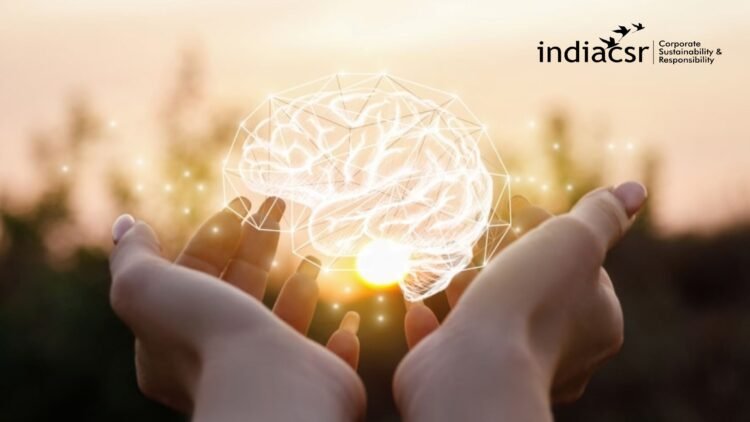Wellness refers to the overall state of being healthy in mind, body, and spirit. It encompasses not just physical health, but also mental, emotional, social, spiritual, and environmental well-being. In this article, the importance of wellness is highlighted by discussing how it can lead to better overall quality of life, greater productivity, and improved relationships with others.
Physical wellness
Physical wellness is all about taking care of your body through healthy habits and regular physical activity. Physical wellness is the state of being healthy in body through regular exercise, balanced diet, adequate sleep and preventive care. It helps to maintain a healthy weight, reduce risk of chronic diseases, and improve overall quality of life.
Mental wellness
Mental wellness is about taking care of your mind and emotional well-being, it can be achieved through stress management, mindfulness practices, emotional support, and other mental and emotional self-care techniques. It is an important aspect of overall well-being, allowing one to be more resilient and better equipped to handle life’s challenges.
Social wellness
Social wellness is about building and maintaining positive relationships, and engaging in activities that bring a sense of community and belonging. It includes effective communication, active listening and participating in activities that bring joy and promotes a sense of community.
Spiritual wellness
Spiritual wellness is the process of understanding one’s purpose, values, beliefs and connecting with something greater than oneself. It includes finding meaning and purpose in life, developing a sense of inner peace and connection to the world. It can be achieved through spiritual or religious practices, or by volunteering and making a positive impact on the world.
Environmental wellness
Environmental wellness is the ability to understand the effects of our daily actions on the natural environment and to make choices to protect and preserve it for future generations. This can be achieved through actions such as reducing waste, conserving energy and using eco-friendly products. It is about living in harmony with the natural world and promoting sustainability.
Occupational wellness
Occupational wellness is about finding fulfillment and balance in one’s work and career. It’s about finding a career that aligns with your values and interests, and striving for a healthy work-life balance to reduce job-related stress. It’s about creating a work environment that is safe, healthy and satisfying.
Conclusion
Overall, the goal of the conclusion is to empower the reader to take control of their well-being and make it a priority in their lives.

Comparison
| Dimension of Wellness | Description | Dimension of Wellness |
| Physical Wellness | Taking care of the body through healthy habits and regular physical activity | Eating a balanced diet, engaging in regular exercise, and getting enough sleep |
| Mental Wellness | Taking care of the mind and emotional well-being | Managing stress through mindfulness or meditation, improving emotional well-being through therapy or journaling |
| Social Wellness | Building and maintaining positive relationships and engaging in activities that bring a sense of community and belonging | Building healthy relationships through effective communication, engaging in activities that promote social wellness like joining a club or group that shares your interests |
| Spiritual Wellness | Exploring one’s sense of purpose, values, and beliefs, and connecting with something larger than oneself | Finding meaning and purpose in life through religious or spiritual practices, volunteer work, or community service |
| Environmental Wellness | Living in harmony with the natural world and promoting sustainability | Reducing impact on the environment by reducing waste, conserving energy and using eco-friendly products |
| Occupational Wellness | Finding fulfillment and balance in one’s work and career | Finding a career that aligns with your values and interests, managing work-life balance and reducing job stress |
Challenge yourself and test your understanding of wellness with the following questions.
1. What is the main focus of physical wellness?
a) Maintaining a healthy mind
b) Maintaining a healthy body through regular exercise, balanced diet, adequate sleep and preventive care
c) Building positive relationships
d) Exploring one’s sense of purpose
2. What is the main focus of mental wellness?
a) Maintaining a healthy mind and emotional well-being through stress management, mindfulness practices, emotional support, and other mental and emotional self-care techniques
b) Maintaining a healthy body through regular exercise, balanced diet, adequate sleep and preventive care
c) Building positive relationships
d) Exploring one’s sense of purpose
3. What is the main focus of social wellness?
a) Building and maintaining positive relationships and engaging in activities that bring a sense of community and belonging
b) Maintaining a healthy mind and emotional well-being through stress management, mindfulness practices, emotional support, and other mental and emotional self-care techniques
c) Maintaining a healthy body through regular exercise, balanced diet, adequate sleep and preventive care
d) Exploring one’s sense of purpose
4. What is the main focus of spiritual wellness?
a) Exploring one’s sense of purpose, values, and beliefs, and connecting with something larger than oneself through religious or spiritual practices, or through volunteer work or community service
b) Building and maintaining positive relationships and engaging in activities that bring a sense of community and belonging
c) Maintaining a healthy mind and emotional well-being through stress management, mindfulness practices, emotional support, and other mental and emotional self-care techniques
d) Maintaining a healthy body through regular exercise, balanced diet, adequate sleep and preventive care
5. What is the main focus of environmental wellness?
a) Living in harmony with the natural world and promoting sustainability through reducing waste, conserving energy and using eco-friendly products
b) Exploring one’s sense of purpose, values, and beliefs, and connecting with something larger than oneself through religious or spiritual practices, or through volunteer work or community service
c) Building and maintaining positive relationships and engaging in activities that bring a sense of community and belonging
d) Maintaining a healthy mind and emotional well-being through stress management, mindfulness practices, emotional support, and other mental and emotional self-care techniques
6. What is the main focus of occupational wellness?
a) Finding fulfillment and balance in one’s work and career through finding a career that aligns with your values and interests, and striving for a healthy work-life balance to reduce job-related stress and creating a work environment that is safe, healthy and satisfying
b) Living in harmony with the natural world and promoting sustainability through reducing waste, conserving energy and using eco-friendly products
c) Exploring one’s sense of purpose, values, and beliefs, and connecting with something larger than oneself through religious or spiritual practices, or through volunteer work or community service
d) Building and maintaining positive relationships and engaging in activities that bring a sense of community and belonging
Answers: 1. b, 2. b, 3. a, 4. a, 5. a, 6. a.
Also Read: Understanding the difference between Fitness and Wellness I India CSR
Disclaimer:
The information provided in this article is intended for general informational purposes only and is not intended as a substitute for professional medical advice, diagnosis, or treatment. It is important to consult with a qualified healthcare professional before making any changes to your exercise or diet regimen. Any exercise program may result in injury, and it is the responsibility of the reader to ensure proper form and technique, and to seek medical advice and attention in the case of injury. The author and publisher of this article assume no liability for any injury or damage sustained as a result of the information provided.







